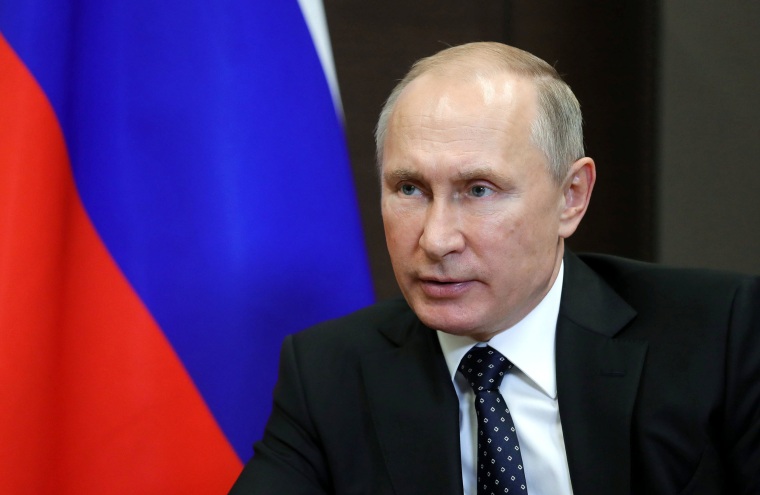MOSCOW — Russian President Vladimir Putin has signed a bill allowing Russia to register international media outlets as foreign agents — a move largely seen as retaliation against the U.S. for similar crackdowns on Kremlin-funded media outlets.
Putin signed the bill into law Saturday after the upper chamber of the Russian parliament adopted it Wednesday. The move is seen as a quid pro quo after U.S. officials demanded that state-media outlet Russia Today, or RT, register as a foreign agent with the U.S. Justice Department.
In 1938, Congress passed the Foreign Agent Registration Act in an effort to curb the amount of German propaganda circulating in the United States.
Since then, the law has primarily been used to help Americans recognize propaganda, and the people and organizations that are "attempting to influence U.S. public opinion, policy, and laws," according to the Department of Justice.
Earlier this month, the Russian Embassy in the U.S. warned that the decision to force RT to register as an agent would "inevitably trigger an immediate and symmetrical response."
Related: Mike Flynn business partner Bijan Kian now subject of Mueller probe
In a statement posted to the embassy's Facebook page, officials accused the U.S. of deliberately hurting the U.S.-Russia relations.
"We consider its demand as a wish to eliminate an alternative source of information, which is an unacceptable violation of the international norms of free press," the statement said.
Even before Putin signed the bill into law, Russia's Justice Ministry warned U.S. government-funded outlets like Voice of America and Radio Free Europe/Radio Liberty, along with its regional outlets, that they could be designated as foreign agents under the new law.
The DOJ's decision to force the network to register as a Russian agent comes amid increased scrutiny and new revelations about Russia's campaign to influence the outcome of the 2016 election.
Earlier this month, representatives from Twitter, Google and Facebook testified before Congress about the role their companies played in sharing Russian-linked propaganda during the U.S. presidential campaign.
An estimated 126 million Americans — or roughly a third of the nation's population — were exposed to Russian-linked content on Facebook during last year's election, according to Facebook officials.
Related: Were you tricked by fake Russian accounts? Facebook will soon let you know.
Twitter has since banned RT, and Russian media outlet Sputnik from advertising on its platform. And on Wednesday, Facebook announced they will be creating a new tool to let users check to see if they were exposed to information shared by fake Russian accounts during the election.
"It is important that people understand how foreign actors tried to sow division and mistrust using Facebook before and after the 2016 US election," Facebook said in a blog post.
Chelsea Bailey reported from New York.
